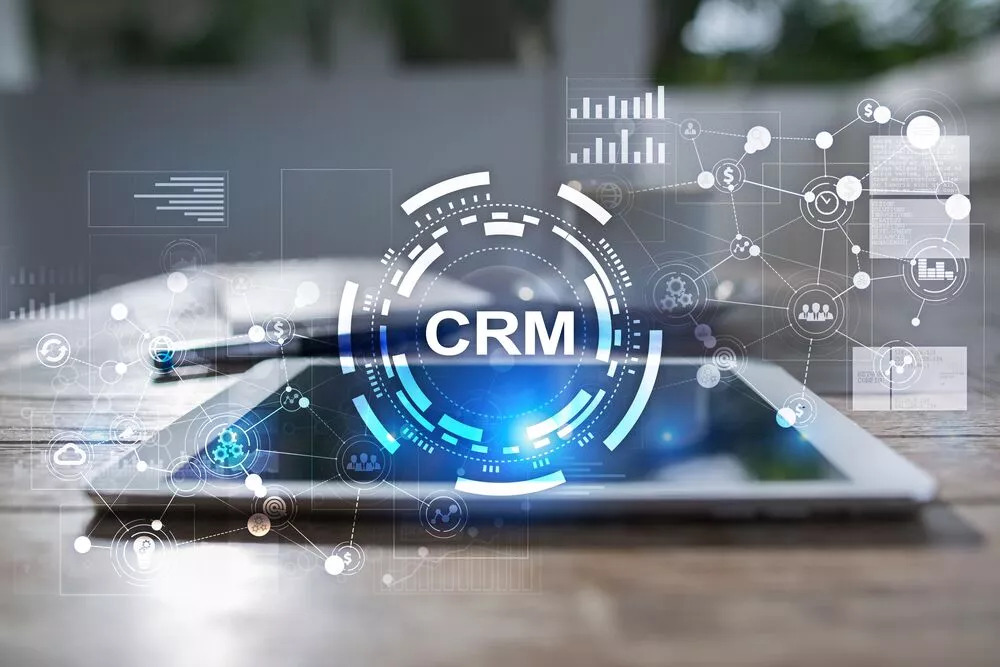CRM (Customer Relationship Management)
Customer relationship management is essential in today's competitive business environment. This approach relies on CRM (Customer Relationship Management) systems to help companies manage their interactions with current and prospective customers. CRM systems can revolutionise your company business in the below listed ways:
Centralised Customer Data: CRM systems offer a centralised database for all customer information, making it easy for your team to access and manage customer data. This centralisation is crucial for providing consistent and personalised customer experiences.
Enhanced Customer Engagement: Businesses can tailor their interactions and communications by understanding customer preferences and history. personalised approach significantly enhances your customer engagement and satisfaction.
Streamlined Sales Processes: CRM tools help you streamline sales processes by managing leads, tracking sales opportunities, and automating critical tasks. You can manage a more efficient sales cycle and higher conversion rates.
Improved Customer Service: With quick access to customer information and history, your businesses can provide faster and more effective customer service. This responsiveness is critical to building your customer loyalty and trust.
Data-Driven Decision Making: CRM systems offer helpful information about the preferences and behaviour of your customers. These insights help companies make marketing, product, and other decisions.
Website and Marketing Experts Pvt Ltd knows how important CRM is to businesses. We offer customised and the Best CRM Software in London, UK, to help your company maximise customer relationships. Our user-friendly, scalable, and integrative CRM solutions help your business thrive in today's dynamic market.
ERP (Enterprise Resource Planning)
ERP systems streamline and integrate your departmental functions, transforming businesses. An ERP system improves a company's decision-making and operations. Here is how ERP systems are essential to the contemporary business operations:
Integrated Business Functions: ERP systems integrate critical business functions such as finance, HR, manufacturing, supply chain management, and more into a unified system. This integration ensures consistency and efficiency across all departments.
Real-Time Data and Insights: One of the best things about ERP systems is that they give you access to data and insights in real-time. This feature gives business decision-makers immediate access to vital data.
Improved Efficiency and Productivity: ERP systems significantly reduce manual labour and errors by automating routine tasks and streamlining business processes. This leads to improved efficiency and productivity across the organisation.
Enhanced Collaboration and Communication: ERP systems break down silos within an organisation by providing a shared database that supports multiple functions. Operations are more efficient when departments collaborate and communicate.
Cost Reduction and Increased Profitability: ERP systems can significantly reduce your operational costs by improving efficiency and reducing manual and duplicative processes. Over time, this cost reduction translates into increased profitability.
Compliance and Risk Management: ERP systems help maintain compliance with industry regulations and standards. They provide tools for monitoring and managing risk, ensuring the business operates within legal and ethical boundaries.
Customisation and Industry-Specific Features: Modern ERP systems offer customisation options and industry-specific features, ensuring they meet different businesses' unique needs and challenges.
HRM and Payroll
HRM and payroll systems are essential for managing employee processes in any company. These systems streamline HR and payroll tasks and contribute significantly to your employee satisfaction and compliance with legal standards. Here's how HRM and Payroll systems can revolutionize your business operations:
Automated HR Processes: Modern HRM systems automate various human resource functions such as recruitment, onboarding, performance management, and employee data management. This automation reduces manual workload and increases efficiency.
Accurate and Efficient Payroll Management: Payroll systems ensure accurate and timely processing of employee salaries, taxes, and other deductions. They perform complex calculations accurately and in accordance with tax laws.
Employee Self-Service Portals: Many HRM systems include self-service portals where your employees can access their data, submit leave requests, view their payroll information, and more. This empowers employees and reduces the administrative burden on HR staff.
Enhanced Employee Management: HRM systems provide tools for tracking employee performance, managing benefits, and developing organisational talent. This improves management and employee growth.
Data-Driven HR Decisions: With comprehensive data analytics, HRM systems offer insights into various aspects of human resource management. This data-driven approach aids in strategic decision-making and helps you identify improvement areas.
Integration Capabilities: HRM and Payroll systems often integrate with other business systems like ERP, CRM, and time tracking tools, providing a unified approach to managing employee data and processes.
Webmark & Marketing Experts Pvt Ltd knows that strong HRM and Payroll systems are crucial to business success. We provide complete, adaptable, and user-friendly solutions for your business. We can streamline, comply, and improve HRM and Payroll processes to boost productivity and employee satisfaction.
LMS (Learning Management System)
Today's business environment requires a culture of continuous learning and development. LMSs help companies manage, deliver, and measure their corporate e-learning programs. Here is how an LMS can be a transformative element in your business:
Centralised Learning Resources: An LMS provides a centralised platform where all educational content is stored and easily accessible. Centralising training and development ensure organization-wide consistency.
Customisable Learning Experiences: Every organisation has unique training needs. An LMS lets you tailor learning paths and courses to these needs. This customisation makes training relevant and useful.
Tracking and Reporting Capabilities: With robust tracking and reporting features, an LMS enables organisations to monitor learner progress and measure the effectiveness of their training programs. Training impact evaluation and continuous improvement require these insights.
Accessible and Flexible Learning: An LMS allows employees to access training materials anytime and anywhere. Remote teams and multi-location companies benefit from this accessibility.
Interactive and Engaging Learning: Modern LMS platforms support multimedia elements like videos, interactive simulations, and quizzes. They improve learning retention by making it more engaging and effective.
Integration with Other Systems: Many LMS platforms can integrate with HRM systems, CRM platforms, and other business tools, providing a seamless experience and a holistic approach to employee development.
We customise advanced LMS solutions for your business at Webmark & Marketing Experts Pvt Ltd. Our LMS platforms are user-friendly, engaging, and comprehensive, giving your staff the best education and training resources. Join us to equip your HR department with the skills they need to succeed in today's competitive market.
Call Our SaaS Team For A Tailored Solutions



